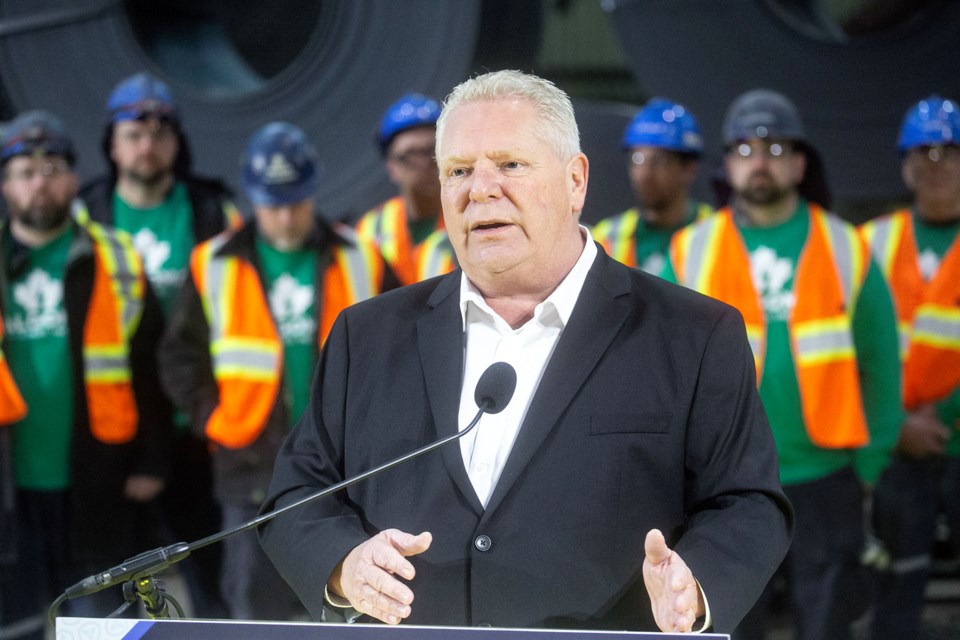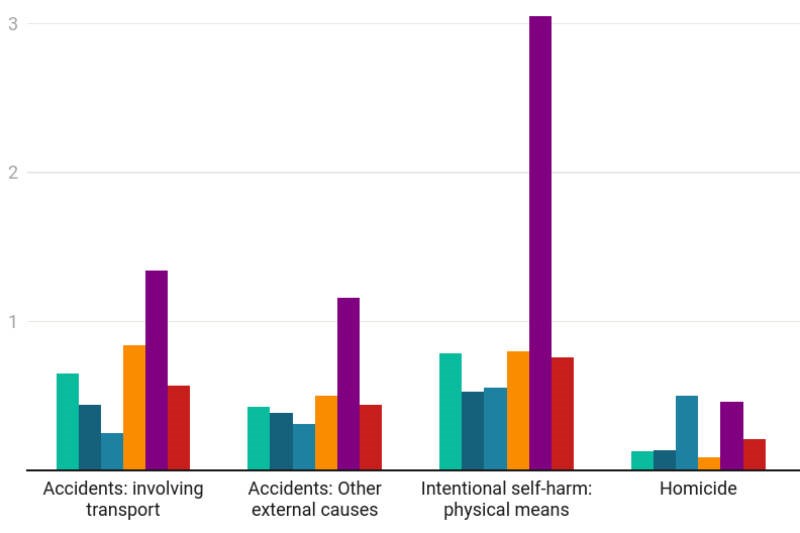Local candidates and the leaders of the Ontario NDP and Ontario PC parties are using words like 'alarming,' 'shocking' and 'heart wrenching' to describe the elevated rate of suicide among youth in northern Ontario, but which party has the best plan to improve the situation and potentially save lives?
Last month, SooToday ran two stories about the youth suicide crisis in northern Ontario.
In the first story, statistics were presented that show the rate of suicide among youth in northern Ontario is four times that of the provincial average and that it takes, on average, more than a year for a child or youth in Sault Ste. Marie to see a psychiatrist.
In a follow up story, SooToday interviewed the mother of a child lost to suicide, as well as local efforts to curb the number of youth who die because of mental health challenges.
Gurwinder Dusanjh, Liberal Party of Ontario candidate for Sault Ste Marie, said his family has been personally affected by youth suicide
"I lost my cousin, unfortunately, to that same situation down south. He was only 18 and he accessed friends online that basically convinced him into ending his life, unfortunately. If he had those resources accessible to him it may have been a different story," Dusanjh said.
He said it was disappointing to see the statistics showing the rate of suicide by youth is four times higher in the north.
"It comes from the neglect and not respect of the north that we don't have the resources in place to help out the youth," said Dusanjh.
"We need to have a coalition of MPPs across party lines in the north advocating for issues in the north. That way we can actually get the resources back up here, because that's an alarming fact that four times as many youth as down south are grappling with this suicide epidemic.
"We're losing our brothers, sisters, mothers, fathers to this and it's something that could be avoided and that's something that plagues society."
Liberal Party of Ontario leader Bonnie Crombie did not travel to Sault Ste. Marie during the campaign and was not interviewed for this story.
In a sit-down interview while she was in the Sault, Ontario NDP leader Marit Stiles reacted to the statistics.
"I wish I could say it was a surprise — it's shocking. It's still shocking. Our MPPs from northern Ontario head north very often for funerals for youth. We see it all the time and it's an epidemic," Stiles said.

The Ontario NDP platform includes a promise to deliver Universal Mental Health Care, which would take the cost of mental health treatment out of the equation for people who need it.
"The solution before us is to actually ensure that young people can be connected with the care they need, when they need it. What's missing is the political will to make it happen and to treat it like the epidemic that it is," Stiles said.
She mentioned the $200 cheques the government sent out to Ontario residents just prior to the election.
"Is it responsible to be giving this money away when there's so many problems?" Stiles said.
"I'm not going to take those cheques away from people — I know people can use extra money right now — but I think most Ontarians are very aware that $200 isn't going to go very far.
"It's going to help you out with groceries for a couple weeks maybe, and then that's it. It's gone. What we need to be doing is investing in our hospitals, investing in our health care, investing in our community mental health."
Local Ontario NDP candidate Lisa Vezeau-Allen said she was hired as a consultant through Algoma University to work on an application to Health Canada for the Youth Mental Health Grant to improve access to services in the area.
"There are three publicly-funded — not even psychiatrists — psychologists, two through Algoma Family Services and one through Sault Area Hospital. In the first three months, Algoma District School Board had over 1,200 youth seeking out mental health help. So I'm excited about the Universal Youth Mental Health proposal," Vezeau-Allen said.
While in town for a press conference at Algoma Steel on Sunday, Ontario PC Leader Doug Ford was presented with the statistics and asked how his government would combat them if voters give it another term in the upcoming election.

"Any youth that take their lives, it's terrible, it's heart wrenching and it affects a lot of people, youth and adults," said Ford, who reaffirmed his party's $3.8 billion commitment to improving mental health in the province.
That $3.8 billion announcement by the Ontario PC government was first made during the throne speech in 2018.
In the following year, the Ontario PC government created the Mental Health and Addictions division within the Ministry of Health and installed Dr. Michael Tibollo to lead it.
"There's been more funding put into mental health and addiction than ever before. I want to try to help people. I want to get them back on their feet," Ford said.
"I want to make sure that they have an opportunity in life. But we're going to continue investing into mental health and and addiction in a big big way," he said.
Through his campaign manager Ross Romano, Ontario PC candidate Chris Scott declined to be interviewed about the youth suicide crisis. Romano instead sent a statement by email that he said can be attributed to Scott.
Scott's full statement is below:
"Only the Ontario PCs have a plan to support Sault Ste. Marie by improving access to mental health and addiction services.
"Since 2018, we have increased our investment by over 25 per cent and have made the largest investment in pediatric care in the province’s history, investing an additional $330 million each year to support high-priority pediatric initiatives in every corner of the province.
"This includes $44.6 million each year to deliver child and youth mental health providers the tools they need to expand and improve access to complex mental health care services and reduce wait lists.
"Through our Roadmap to Wellness, we’ve launched nearly 30 Youth Wellness Hubs, including in Sault Ste. Marie, connecting over 60,000 youth and families to mental health services close to home.
"In addition to the 500 addiction recovery beds we have added since 2018, we are creating 27 new Homelessness Addictions Recovery Treatment (HART) Hubs, including two in Sault Ste Marie, to deliver responsive, comprehensive mental health services, addictions care, social services, and supportive housing.
"Our PC team will continue to build on our record improving access to mental health and addictions services in every corner of the province," Scott said in his statement.
